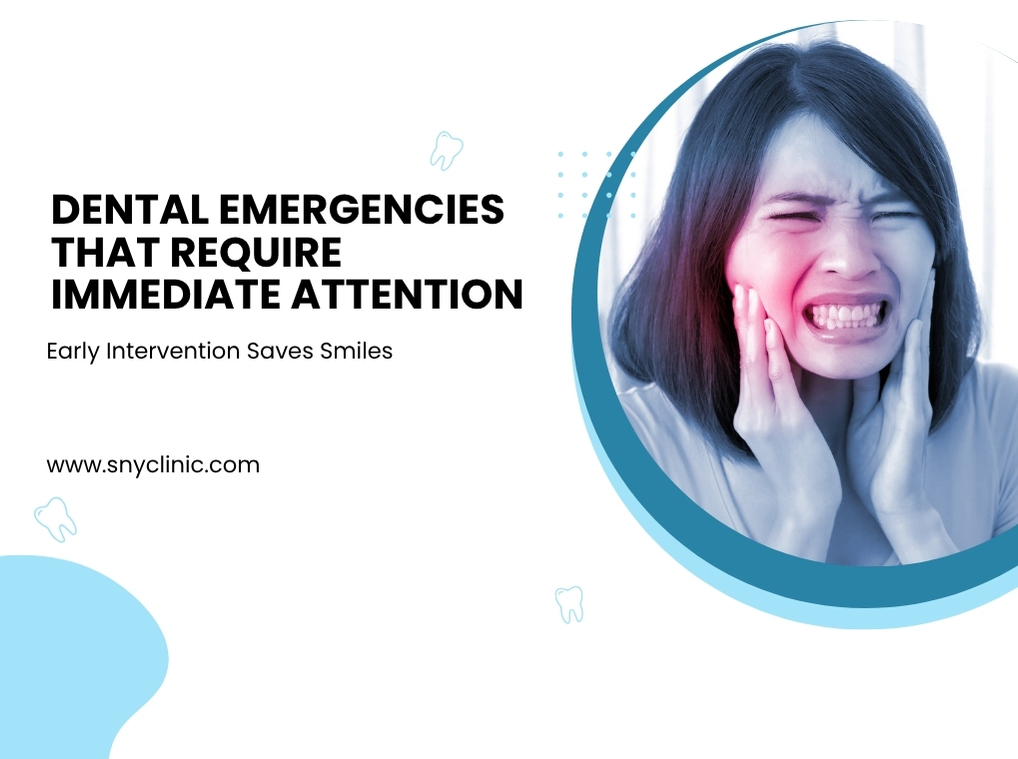
Dental Emergencies That Require Immediate Attention
Dental Emergencies That Require Immediate Attention
Most dental problems we encounter in daily life can usually be resolved through scheduled appointments. However, some situations demand immediate attention and cannot wait. Sudden pain, trauma, or infections are among the oral health problems that require prompt intervention. In this article, we explain the situations that may force you to urgently visit a dental clinic and how to act in those moments.
1. Persistent and Severe Toothache
A toothache that starts suddenly and does not subside after several hours may be more than a minor issue. Throbbing, continuous pain that does not respond to painkillers may indicate serious conditions such as pulpitis, nerve damage, or an abscess. In such cases, it is crucial to consult a dentist immediately rather than trying to treat it on your own.
2. Tooth Displacement or Fracture
When trauma causes a tooth to be completely knocked out (avulsion), broken, or cracked, immediate action is necessary. If the tooth is knocked out, rinse it gently with clean water without touching the root and store it in milk. Reach a dentist within 30 minutes. This increases the chance of successfully reattaching the tooth.
3. Dental Infections with Facial Swelling and Fever
Severe swelling around the jaw, a bad taste in the mouth, difficulty swallowing, and fever are often signs of a widespread dental infection. These infections can threaten not only the teeth and gums but also the jawbone and overall health. In advanced cases, hospitalization may even be required.
4. Lost Filling or Crown
The loss of an existing filling or crown exposes the natural tooth underneath to external factors. This may lead to temperature sensitivity, difficulty chewing, and increased risk of fracture. If the lost filling is near the nerve, prompt intervention is especially important.
5. Continuous Bleeding Gums or Painful Mouth Sores
Bleeding from the gums should normally stop within a short time. However, persistent bleeding that does not stop even under pressure, or painful sores in the mouth, may indicate a more serious issue that requires urgent evaluation. Gum disease, immune system disorders, or traumatic injuries can cause such symptoms.
6. Dislodged or Poking Orthodontic Devices
Patients undergoing orthodontic treatment may experience significant discomfort if brackets become loose or wires poke into the cheek, tongue, or palate. Do not attempt to cut or remove the wire on your own—see your orthodontist immediately to prevent further injury inside the mouth.
7. Abnormal Symptoms After Tooth Extraction
Mild pain and swelling after tooth extraction are normal for a few days. However:
- Excessive pain
- Persistent bleeding
- Bad breath
- Severe sensitivity
These could be signs of complications like "dry socket." In such cases, the healing process is interrupted, and professional treatment is necessary.
What Should You Do in an Emergency?
- Don’t panic: Staying calm is essential for making the right decisions.
- Seek professional help: Contact your dentist or visit the nearest emergency service as soon as possible.
- Don’t rely on temporary relief: Suppressing the pain won’t solve the problem. Delaying treatment may result in loss of the tooth or surrounding tissues.
Early Intervention Saves Smiles
Oral problems are often underestimated, but ignoring certain symptoms can lead to irreversible consequences. If you experience any of the symptoms mentioned here, it is crucial for your health to consult a dentist without delay. Remember, early intervention ensures a more comfortable treatment process and helps resolve issues at a lower cost.




